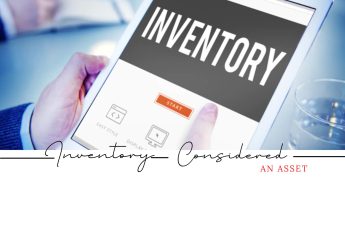Small Business Point of Sale System
Types of small business POS systems
There are several types of small business POS systems available, each with their own features and capabilities. Here are some of the most common types:
- Tablet-based POS systems: These systems are designed to run on tablets, such as iPads or Android tablets. They are typically lightweight and easy to use, making them a good choice for small businesses with limited counter space.
- Traditional POS systems: These systems typically consist of a desktop computer, a cash register, and a card reader. They are often more robust than tablet-based systems and can handle more complex tasks, such as inventory management and employee scheduling.
- Cloud-based POS systems: These systems are designed to run on the cloud, meaning that data is stored online rather than on a local server. They can be accessed from anywhere with an internet connection, making them a good choice for businesses with multiple locations or mobile teams.
- Mobile POS systems: These systems are designed to run on smartphones or tablets, and are often used by businesses that operate on the go, such as food trucks or pop-up shops.
- All-in-one POS systems: These systems are designed to include everything a small business needs in one package, including a cash register, card reader, and software. They are often more affordable than traditional POS systems and can be set up quickly and easily.
When selecting a POS system for your small business, it’s important to consider your specific needs and the features that are most important to your business. By carefully evaluating your options, you can select the POS system that is the best fit for your business.
A POS system point of sale is used for?
A POS (point of sale) system is a computerized system used by businesses to manage sales transactions and other business operations. The system typically includes hardware, such as a cash register or card reader, and software that allows businesses to process payments, manage inventory, and track sales data.
Some of the key functions of a POS system include:
- Processing sales transactions: A POS system allows businesses to accept various forms of payment, including credit cards, debit cards, and cash.
- Managing inventory: A POS system can help businesses keep track of inventory levels and track sales trends to determine which products are selling well and which ones are not.
- Generating reports: A POS system can generate reports on sales, inventory, and other key performance metrics, allowing businesses to make informed decisions about their operations.
- Managing customer data: A POS system can help businesses manage customer data, such as contact information and purchase history, allowing them to personalize the customer experience and build stronger relationships with their customers.
- Integrating with other systems: Many POS systems can integrate with other software and hardware systems, such as accounting software or barcode scanners, to streamline business operations and improve efficiency.
Overall, a POS system is a critical tool for businesses of all sizes, helping them to manage sales transactions, track inventory, and make informed business decisions.
What is POS point of sale?
POS, or point of sale, refers to the physical location where a sales transaction takes place between a merchant and a customer. A POS system is a computerized system used by businesses to manage sales transactions and other business operations at the point of sale.
A typical POS system includes hardware such as a cash register or card reader, and software that allows businesses to process payments, manage inventory, and track sales data. The software component of a POS system is used to record sales data, manage inventory levels, and generate reports on business performance.
POS systems are used in a wide range of industries, including retail, restaurants, hospitality, and healthcare. They offer many benefits to businesses, including improved efficiency, streamlined operations, and better customer service.
Overall, a POS system is a critical tool for businesses to manage sales transactions and other key business operations at the point of sale. By using a POS system, businesses can improve their operations, track their performance, and provide a better customer experience.
What is lightspeed in a POS system?
Lightspeed is a cloud-based point of sale (POS) system designed for small and medium-sized businesses in the retail and hospitality industries. The system provides businesses with a range of features and tools to help them manage sales transactions, inventory, customer data, and more.
Some of the key features of Lightspeed POS include:
- Sales management: Lightspeed allows businesses to process sales transactions quickly and efficiently, accepting a variety of payment methods, including credit cards, debit cards, and cash.
- Inventory management: The system provides businesses with a range of tools to manage inventory levels, track stock levels, and set reorder points.
- Customer management: Lightspeed allows businesses to collect and manage customer data, including contact information, purchase history, and loyalty program data.
- Reporting and analytics: The system generates a range of reports and analytics on sales, inventory, and other key business metrics, helping businesses make informed decisions about their operations.
- Integration: Lightspeed integrates with a range of other software and hardware systems, such as accounting software, eCommerce platforms, and barcode scanners, to streamline business operations and improve efficiency.
One of the key benefits of Lightspeed POS is its cloud-based architecture, which means that all data is stored online, rather than on a local server. This makes it easy for businesses to access their data from anywhere with an internet connection, and to scale their operations as needed.
Overall, Lightspeed is a comprehensive and powerful POS system designed to help small and medium-sized businesses in the retail and hospitality industries manage their operations more effectively. By using Lightspeed, businesses can improve their efficiency, track their performance, and provide a better customer experience.




